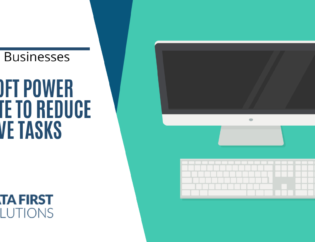
What is Blockchain Technology?
Blockchain technology is a type of distributed ledger technology that records transactions across a network of computers. It works in a decentralized manner, with no single entity controlling the whole network, hence allowing security and transparency. Each block within the chain contains a list of transactions and is connected to the previous block, making a chain of data secure.
The concept of the blockchain was initiated with the invention of Bitcoin in the year 2008 by Satoshi Nakamoto. Since then, blockchain has grown past cryptocurrencies into large areas of usage, including those pertaining to finance, supply chain management, healthcare, among others.
How Does Blockchain Work?
It is based on a peer-to-peer network, where every participant, also called a node, holds a copy of the whole blockchain. Any new transaction is broadcast on the network and verified by nodes using a consensus mechanism. When it is verified, the transaction gets added to a new block and appended to the existing chain.
The Role of Consensus Mechanisms
The consensus mechanism goes a long way in ensuring that the blockchain remains intact. They ensure nodes come to an understanding over the state of transactions before their addition to the chain. The most common one, of course, happens to be PoW, solved by nodes on the Bitcoin network with complex mathematical equations. Other notable ones, which also enjoy some form of support, include PoS and DPoS. Each of these different consensus algorithms has its perks and trade-offs.
Security Features
The security of blockchain is based on its decentralized nature and the cryptographic techniques used. Each block contains a cryptographic hash of the previous block, which makes it virtually impossible to alter any information without affecting subsequent blocks. This immutability ensures that once data is recorded on the blockchain, it cannot be changed or tampered with.
What Are the Applications of Blockchain?
It finds applications in many industries due to its transparency, security, and efficiency.
Financial Services
In finance, blockchain helps to make transactions faster and more secure with the elimination of middlemen. It provides real-time settlement and cuts costs that would otherwise have been used in banking processes. Cryptocurrencies like Bitcoin and Ethereum are the most obvious examples of blockchain’s influence on finance.
Supply Chain Management
Blockchain increases supply chain transparency by creating an indelible record of the movement of products from their origin to their destination. This traceability helps in reducing fraud, ensures product authenticity, and enhances logistical efficiency.
Healthcare
In healthcare, blockchain can securely store patient records, ensuring data privacy with authorized access by medical professionals. It also facilitates efficient sharing of medical data across institutions for better patient care.
Real Estate
Blockchain simplifies real estate transactions with a transparent ledger for property records. It reduces fraud risks and streamlines processes such as title transfers and contract management.
What Are the Challenges Facing Blockchain?
Despite its potential benefits, there are a number of challenges to be addressed for blockchain to achieve wide acceptance.
Scalability Issues
One of the major challenges is scalability. As more and more transactions are added to the blockchain, the network becomes slower and less efficient. To improve scalability without sacrificing security, solutions such as sharding and layer-two protocols are under consideration.
Regulatory Concerns
Regulatory uncertainty is another challenge to the adoption of blockchain. Different countries have different regulations with regard to cryptocurrencies and blockchain technology, making a very complex landscape for businesses to operate globally.
Energy Consumption
Energy consumption with some consensus mechanisms, such as Proof of Work, is an environmental concern. Hence, there is research into the development of more energy-efficient variants such as Proof of Stake.
How Businesses Can Utilize Blockchain
Blockchain technology can be utilized to achieve better business outcomes and develop competitive advantages.
Improving Transparency
By adopting blockchain, companies can enhance transparency in their operations, building trust with customers and partners. This transparency can lead to increased customer loyalty and improved brand reputation.
Reducing Costs
Blockchain can streamline processes by eliminating intermediaries and reducing administrative overheads. This cost reduction can be particularly beneficial in sectors like finance and supply chain management.
Innovating New Business Models
Blockchain opens up opportunities for creative business models, such as platforms for DeFi and tokenized assets. Such innovative models can create new revenue streams and even attract tech-savvy customers.
Ready to Explore Blockchain Opportunities?
As we have seen, blockchain technology offers a range of possibilities for innovation across many industries. Whether you want to make your supply chain more transparent or explore new financial models, understanding how blockchain works is crucial to leveraging its full potential.
If you’re wondering how blockchain can help your business or would like to know more about successful implementation, feel free to contact us at Data First Solutions. Our team is ready to help you through the many complexities of blockchain and unlock new avenues for growth.







